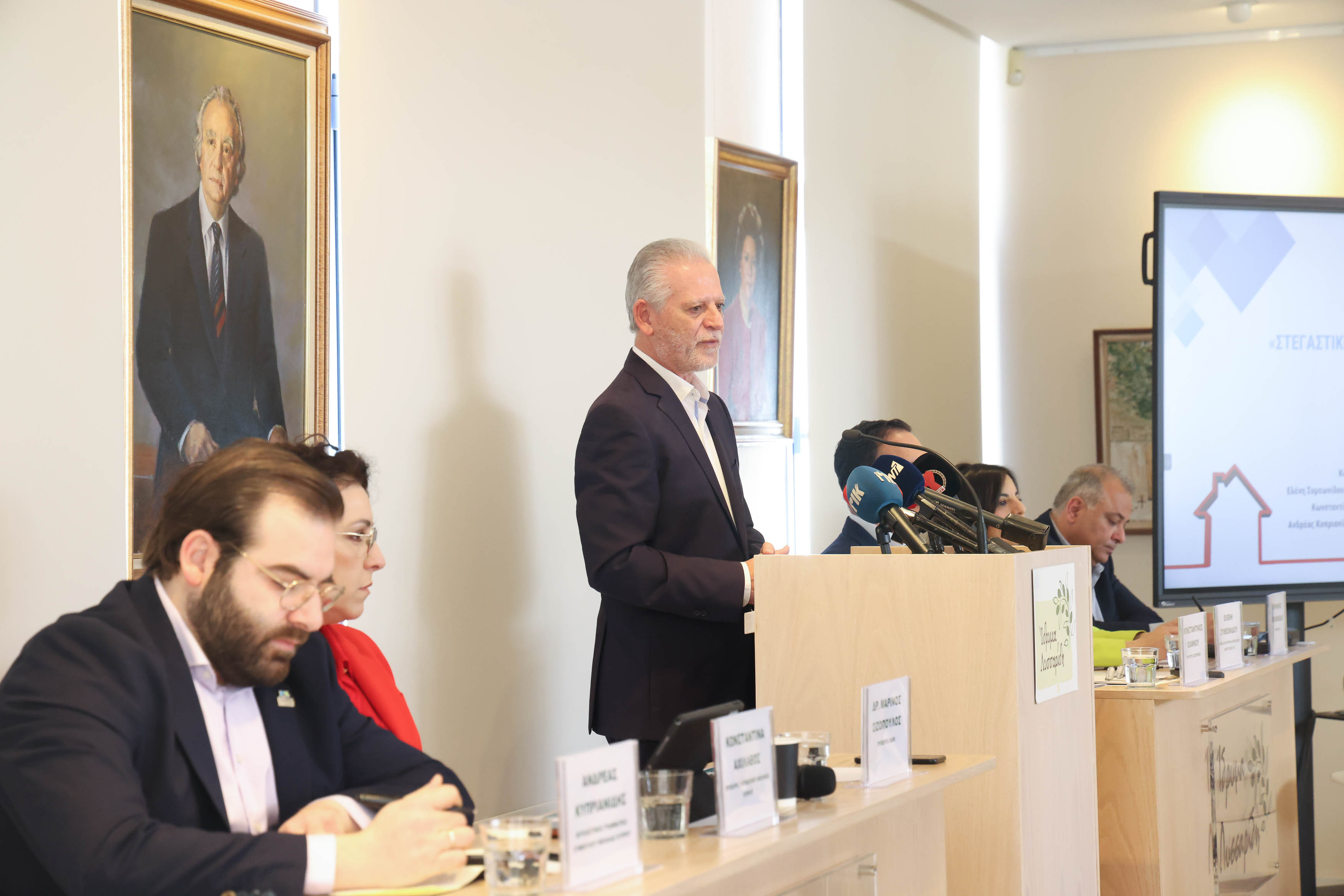The Cypriot government is ramping up efforts to tackle the housing crisis, with nearly 1,900 new residential units expected under the “Build to Rent” scheme, Interior Minister Constantinos Ioannou said on Friday. Of these, more than 280 homes will be designated as affordable housing.
Speaking at a conference on housing policy organised by the Edek party at the Lysarides foundation in Nicosia, Ioannou outlined the government’s two-pronged strategy: increasing housing supply and boosting citizens’ purchasing power, particularly for young people and families.
Ioannou described housing as a growing social crisis across Europe and beyond. He pointed to geopolitical tensions in Ukraine and the Eastern Mediterranean, alongside global inflation, as key factors driving up construction costs.
In response, Ioannou said, President Nikos Christodoulides’ administration has developed a comprehensive housing policy focused on affordable options for middle- and low-income households, young people, and families.
The minister highlighted the government’s urban planning incentives, which grant developers up to 45 per cent additional building density if they commit to offering part or all of the extra units at affordable prices.
Interest in the scheme has been strong, with €8.7 million expected to flow into the Cyprus land development corporation’s (Koag) Special Fund from the sale of these incentives. This money will be reinvested in further affordable housing projects.
Another initiative, “Renovate & Rent”, aims to bring vacant properties back into the rental market with tax breaks. However, Ioannou admitted its impact has been limited so far, with only 32 applications received despite over 400 registrations on Koag’s online platform.

Koag is now the state’s main housing policy agency, with funding secured to relaunch its programmes. The minister announced plans to start construction on 200 new housing units in 2025, in addition to an ongoing 138-unit affordable housing project in Limassol, backed by €16 million in state funding.
To help more people afford homes, the government is also offering financial assistance schemes. One such initiative provides grants to young individuals and couples under 41, with 320 applications submitted so far and nearly 30 approvals granted.
Housing support is also being extended to rural and disadvantaged areas. Since the introduction of regional housing schemes, 1,694 applications have been approved, with nearly €64 million allocated. A further 129 approvals have been granted since May 2024, totalling €5.2 million.
Ioannou also highlighted reforms to speed up planning and construction approvals. Single and semi-detached houses now receive permits within 20 working days, while developments of up to 12 houses or four-storey apartment buildings are processed within 40 days.
Other speakers at the event included Edek leader Marinos Sizopoulos, Koag director Eleni Symeonidou, youth organisation of Cyprus (Onek) president Konstantina Achilleos, and youth council executive secretary Andreas Kyprianides.






Click here to change your cookie preferences